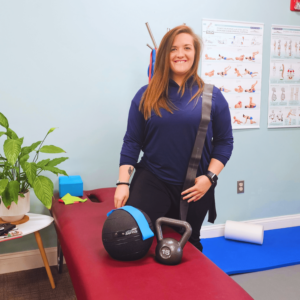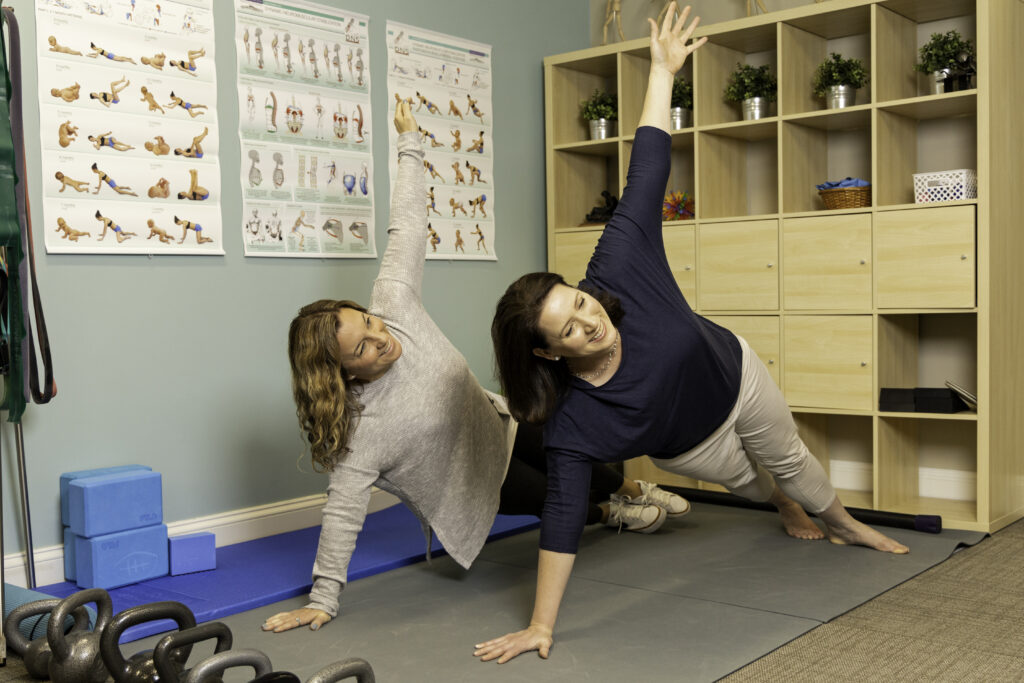Understanding Common Musculoskeletal Complaints During Perimenopause and Menopause
The journey through perimenopause and menopause brings many changes, including shifts in joint and muscle health. Women often report new or worsening aches, pains, and stiffness during this time. Understanding why these symptoms occur and how to address them holistically can help women maintain strength, mobility, and overall wellness.
Common Joint and Muscle Symptoms Associated with Hormones
Joint Pain and Stiffness: Many women experience joint discomfort, particularly in the hands, knees, and hips. Morning stiffness and swelling may also become more noticeable.
Muscle Weakness and Fatigue: Loss of muscle mass (sarcopenia) often accelerates during menopause, leading to weakness and increased risk of injuries.
Tendinitis and Increased Risk of Injuries: Due to reduced collagen production, Conditions like tennis elbow, plantar fasciitis, and other tendinopathies are becoming more common.
Osteoporosis and Fracture Risk: Bone density loss speeds up as estrogen levels drop, making bones more fragile and susceptible to fractures.
Why Do These Symptoms Happen?
Hormonal changes during menopause, particularly the decline in estrogen and progesterone, are primary drivers of these joint and muscle complaints. Estrogen is crucial in maintaining bone density, collagen production, and muscle mass. Without sufficient estrogen, the body’s ability to repair and regenerate connective tissues diminishes, increasing stiffness, pain, and injury risk.
Perimenopause doesn’t just bring physical changes; it can also affect mental health. Lara Briden describes this phase as a “reverse puberty,” with significant hormonal fluctuations that can lead to mood swings, anxiety, irritability, and depression.
The drop in progesterone, known for its calming effects, and erratic estrogen levels can contribute to these emotional shifts. Women may also experience heightened stress or difficulty sleeping, further impacting mental well-being. Recognizing these changes is an important step toward addressing them holistically.
Inflammation and stress can further exacerbate symptoms. Chronic stress raises cortisol levels, impairing muscle repair and contributing to joint discomfort.
Holistic Treatments for Joint and Muscle Pain During Perimenopause
A holistic approach to managing MSK health during menopause includes nutrition, exercise, stress management, and considering hormone therapy when appropriate.
Nutrition
- Anti-inflammatory foods: To reduce systemic inflammation, include fatty fish, leafy greens, berries, nuts, and seeds.
- Reduce excess sugar, processed foods, and other inflammatory food-like substances.
- Calcium and Vitamin D: Essential for bone health. Foods like dairy, fortified plant-based milks, and leafy greens are excellent sources.
- Protein Intake: Aim for 20-30 grams of protein per meal to support muscle repair and prevent sarcopenia.
- Omega-3 Fatty Acids: Found in fish oil, flaxseeds, and walnuts, these support joint health and reduce inflammation.
- Magnesium is crucial for muscle relaxation and bone health. Include nuts, seeds, and dark chocolate in your diet.
Exercise
- Strength Training: Weight-bearing exercises like squats, lunges, and resistance training help maintain muscle mass and bone density. Muscle mass is also essential for controlling insulin resistance, blood sugar levels, and metabolism.
- Mobility and Flexibility: Yoga or Pilates improves joint mobility and balance, reducing injury risk.
- Low-Impact Cardio: Walking, cycling, and swimming enhance cardiovascular health without stressing joints.
Stress Management
- Mindfulness Practices: Meditation, deep breathing, and yoga can lower cortisol levels and reduce MSK pain.
- Sleep Hygiene: Prioritize restful sleep as it’s crucial for tissue repair and recovery.
- Hydration: Proper hydration helps maintain joint lubrication and overall tissue health.
Hormone Therapy
For some women, hormone therapy (HT) can be a game-changer. Estrogen replacement may help reduce inflammation, improve collagen production, and slow bone density loss. Work with a healthcare provider to determine if HT is right for you and explore bioidentical hormone options if preferred.
How We Can Help at Frederick Chiropractic Wellness Center
At Frederick Chiropractic Wellness Center, we offer treatments designed to support your musculoskeletal health during menopause. Our services focus on:
- Maintaining Mobility and Strength: Through tailored chiropractic care, functional rehabilitation, and strength training exercises, we help you stay active and resilient.
- Managing Inflammation: We utilize Frequency Specific Microcurrent, red light therapy, and the Avant laser to reduce inflammation and promote tissue healing.
- Holistic Guidance: Our team can provide personalized recommendations for nutrition, stress management, and lifestyle changes.
Additionally, we collaborate with and co-manage your care alongside other health practitioners, ensuring a comprehensive approach to your well-being.
The Importance of a Whole-Person Approach
Addressing joint and muscle pain during menopause requires more than quick fixes. A whole-person approach that integrates movement, nutrition, emotional health, and, when appropriate, medical interventions can help women navigate these changes with resilience and vitality.
By staying proactive and focusing on holistic care, women can continue moving, feeling, and healing better through all life stages.
Recommended Reading:
Lara Briden www.larabriden.com
Dr. Stacy Sims www.drstacysims.com
Dr. Mary Clare Haver www.thepauselife.com
Local Resources and Practitioners:
Ashley Russell, N.D. Frederick Natural Health Center
Tina Brockett, Nutritionist – Encompass Integrated Wellness
Empty Nest Kitchen – Christine VanBloem- Menopause Meal Plans





